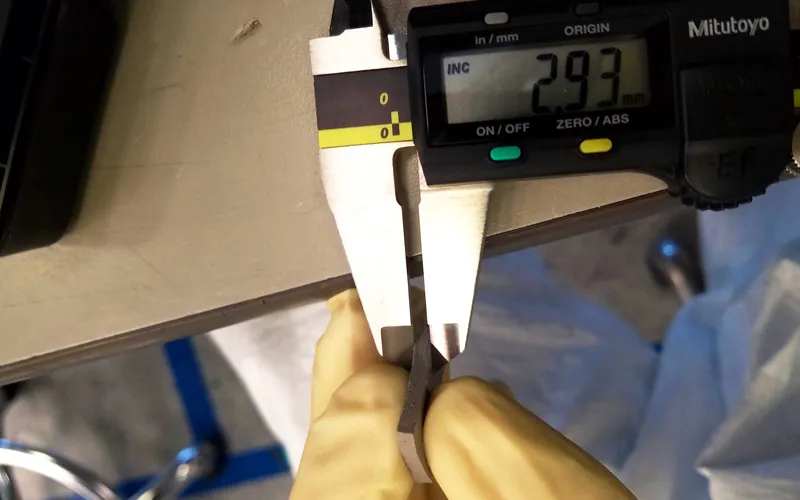Thermal pads are used to provide heat conduction between heat-producing components and heat sinks or other cooling devices. They can be made from various materials, including silicone, ceramic, and other compounds, and come in various thicknesses to accommodate different applications.
To measure the thickness of a thermal pad, you can use the following steps: Materials needed a clean and flat surface, the thermal pad you want to measure, a micrometer or caliper (digital or analog).

Before you start, make sure the surface where you'll be measuring the thermal pad is clean and flat. Any debris or unevenness can affect the accuracy of your measurement.
Place the thermal pad on the clean, flat surface. Ensure it's not compressed or stretched in any way, as this could affect the measurement.
A micrometer or caliper is a tool that can accurately measure small distances. They are often used in mechanical engineering and machining, but they are also useful for measuring the thickness of thin materials like thermal pads.
Open the micrometer wide enough to accommodate the thermal pad. Then, carefully place the thermal pad between the anvil and spindle of the micrometer. Gently close the micrometer until it contacts the thermal pad, but avoid squeezing or deforming the pad. Read the measurement on the micrometer's scale.
Open the jaws of the caliper wide enough to accommodate the thermal pad. Place the thermal pad between the jaws, then gently close the jaws until they contact the thermal pad, without squeezing or deforming it. The reading on the caliper scale or digital display is the thickness of the thermal pad.
Check the measurement on the micrometer or caliper. This will give you the thickness of the thermal pad. It's a good idea to take multiple measurements and average them to ensure accuracy.
The thickness of the thermal pad is crucial for it's function. If it's too thick, it might not provide enough heat conduction. If it's too thin, it might not provide enough insulation or could even break. So, it's crucial to ensure the thermal pad is the right thickness for it's intended use.
If you would like to learn more about AOK performance thermal materials, please visit our website at www.aok-technologies.com
